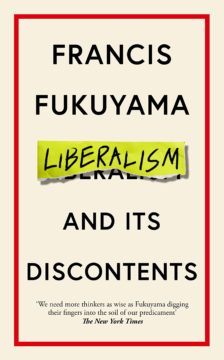Charles Mathewes in The Hedgehog Review:
 Francis Fukuyama’s work is generally treated much the way pigeons treat statues: as something on which to deposit badly digested ideas, which are then left for others to clean up. His notoriety for the “End of History” thesis is based on a misreading of that phrase, not a real reading of his 1989 National Interest article “The End of History?” or his less sanguine 1992 book The End of History and the Last Man. His subsequent work has received respectful public attention, but little scholarly engagement; he is treated more as a symptom than an intellect. Even with this book, the pattern of neglect-by-vague-praise continues: None of its many reviewers, for all their pretense at comprehension, noticed that his drive-by definition of “deontology” (“not linked to any ontology or substantive theory of human nature”) is totally wrong: Deontology comes from deon, a Greek word here meaning something like “duty” and refers to the study of ethics.
Francis Fukuyama’s work is generally treated much the way pigeons treat statues: as something on which to deposit badly digested ideas, which are then left for others to clean up. His notoriety for the “End of History” thesis is based on a misreading of that phrase, not a real reading of his 1989 National Interest article “The End of History?” or his less sanguine 1992 book The End of History and the Last Man. His subsequent work has received respectful public attention, but little scholarly engagement; he is treated more as a symptom than an intellect. Even with this book, the pattern of neglect-by-vague-praise continues: None of its many reviewers, for all their pretense at comprehension, noticed that his drive-by definition of “deontology” (“not linked to any ontology or substantive theory of human nature”) is totally wrong: Deontology comes from deon, a Greek word here meaning something like “duty” and refers to the study of ethics.
The slip-up is a little embarrassing, but it doesn’t really damage the book’s argument.
More here.
